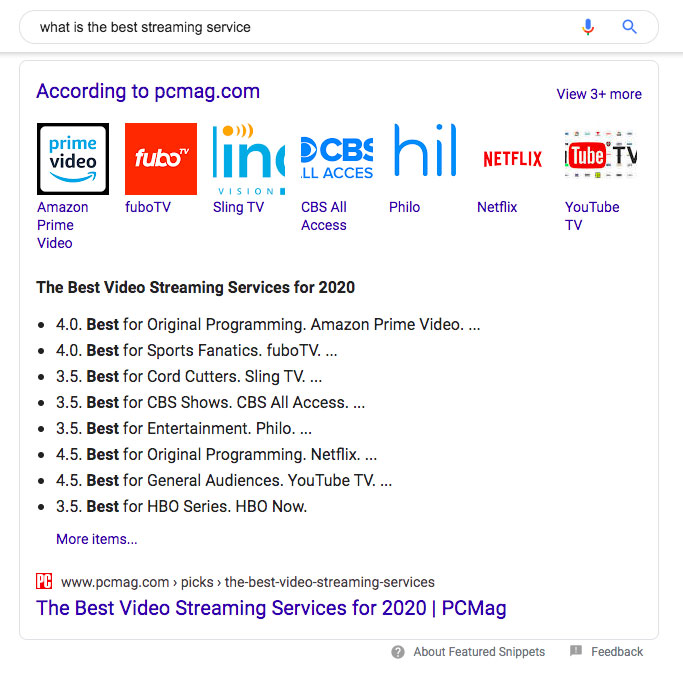“Hey Alexa, how late is Target open?”
“Ok, Google, set a timer for 30 minutes.”
“Siri, how old is Queen Elizabeth?”
With 118 million smart speakers in the US and approximately 100 million Americans using an iPhone, those commands probably sound familiar to you.
Smart speakers and virtual assistants are changing the way we live and the way we search for information online. In fact, it is predicted that this year, over half of all searches will be done via voice.
For the layperson, searching has become more convenient than ever. For digital marketers, Siri, Alexa, and Google Home are changing the way we approach SEO.
(Note: Microsoft Cortana is another virtual assistant but we chose not to mention because of its low usage.)
The Rise of Voice Search
The ascent of voice search over the past few years has been nothing short of remarkable. A study by ComScore predicted that by 2020, 50% of all searches would be voice searches, a trend that reflects the rapidly changing landscape of digital search. Another report from Gartner suggested that 30% of all searches would be done without a screen by 2021. This surge can be largely attributed to the increasing use of digital assistants like Amazon’s Alexa, Google Assistant, and Apple’s Siri. According to Google, 27% of the global online population is using voice search on mobile. Additionally, the voice recognition market is expected to reach $27.16 billion by 2026, as per a report by MarketsandMarkets, indicating a growing reliance on and trust in voice-based technology.
Factors Driving the Popularity of Voice Search
Several factors contribute to the rising popularity of voice search. The most significant of these is convenience. Voice search is faster than typing, with the average person able to speak approximately 150 words per minute compared to typing 40 words per minute. This efficiency is appealing for multi-tasking users and those seeking quick answers on the go.
The advent of smartphones and smart speakers has also played a crucial role. With more people owning devices capable of voice search, its usage has naturally increased. Moreover, improvements in natural language processing (NLP) and machine learning have made voice recognition more accurate and capable of understanding various languages and accents, enhancing user experience.
Accessibility is another driving factor. Voice search provides an easier digital navigation option for the elderly and individuals with physical or visual impairments. It eliminates the barrier of complex navigation menus and small touchscreen keyboards, offering a more inclusive digital world.
Lastly, changes in lifestyle and user behavior have contributed to the rise of voice search. With the increasing pace of life and the desire for instantaneous information, users are leaning towards the quickest means of finding answers – and voice search fits the bill perfectly.
Impact of Voice Search on SEO
Voice searches tend to be more conversational and natural-sounding, as opposed to the more fragmented keywords typically used in text searches. This shift requires a change in approach to SEO – one that prioritizes natural language and question-based queries.
Voice search queries also tend to be longer and more specific. While a text search might be a few words, voice searches often take the form of complete sentences. This difference in query structure necessitates a refined approach to content creation and keyword optimization, focusing on conversational phrases and complete questions.
Changes in Keyword Trends and User Behavior
With the rise of voice search, there’s a significant change in keyword trends and user behavior. Users are increasingly relying on voice for local searches, with queries like “Where is the nearest coffee shop?” becoming commonplace. This shift means that local SEO is more important than ever, with a focus on local landmarks and geo-specific content.
Voice search has also led to an increase in the use of question-based keywords. Phrases starting with “who,” “what,” “where,” “when,” “why,” and “how” have become crucial in optimizing for voice search. Additionally, because voice search is often used for immediate needs, there’s an increased emphasis on real-time information and quick, concise answers.
Voice Search and Long-Tail Keywords
One of the key aspects of adapting SEO for voice search is the increased importance of long-tail keywords. These are longer, more specific phrases that users are likely to speak rather than type. Long-tail keywords are a critical component for improving visibility in voice searches, as they align closely with the natural, conversational tone of voice queries.
To leverage this, SEO strategies must focus on comprehensive content that answers specific questions and addresses long-tail queries. This involves creating detailed, value-driven content that captures the intent behind voice searches. With voice search users often seeking specific answers, content that directly addresses these long-tail queries is more likely to rank higher.
How Smart Speakers Search
Before understanding how smart speakers rank content, we have to know how these speakers find the information you ask for. Google Home obviously uses Google to perform their searches. So does Siri. Amazon Echo devices use Bing…sort of. (We’ll get back to this in just a minute.)
With that in mind, how do Siri, Alexa, and Google choose which answer gets read?
Google Home & Siri
In the case of Google and Siri, they typically read the featured snippet, or “position zero.” This is the organic search result that shows up in a box at the top of the SERP.

Amazon Echo Devices & Alexa
In the case of Echo devices, the answer is a little trickier. We don’t really know exactly how Alexa chooses the “right” answer. Amazon’s VP of Alexa Information, Bill Barton, stated that the Echo only uses Bing for “supplemental items such as search links in the Alexa mobile app.”
In the same interview, he stated that Amazon licenses information from a variety of sources, but didn’t elaborate. And in the fall of 2019, Amazon debuted Alexa Answers. This allows Amazon users to answer questions that Alexa doesn’t already have answers to. (We already know what you’re thinking and Amazon says they have precautions in place to prevent misuse.)
So does SEO factor into the Alexa experience at all?
We honestly don’t know. It doesn’t seem like it, but we also don’t know where Amazon is licensing their information from, so it could be influenced by rankings.
So even though Amazon, the biggest player in the smart speaker game, doesn’t seem to rely on SERPs for Alexa, Google and Siri are still changing the way marketers approach SEO.
The Featured Snippet and Voice Search
Since Google and Siri read the featured snippet, it has become even more coveted. Although in early 2020, Google dropped a bombshell that had people rethinking their featured snippet strategy: if you have the featured snippet, you will no longer appear in the organic results. Previously, it was possible to have the featured snippet and appear in the organic search results, essentially allowing you to appear on page one of SERPs twice. But this is a topic for another day!
In general, you shouldn’t worry about not having the featured snippet or being in “position zero” if you’re getting the traffic and conversions you need.
But for those of you that do want to be in position zero and hope to hear their content read by their smart speaker, here are three tips to optimize for voice search.
Top Three Voice Search SEO Tips
These tips apply to Siri and Google Home, based on what we know about the way Google ranks content and chooses the featured snippet. These are good SEO best practices in general, but they’re especially important for voice search.
1. Use Natural Language & Long-Tail+ Keywords
Again, this is important for SEO in general, but even more so for anyone trying to take advantage of voice search.
Since people actually speak their searches instead of typing them, they follow more natural speech patterns. Voice searches are more conversational because, well, you’re having a conversation with Alexa, Siri, or Google.
Voice searches are also more likely to be questions. While you might type, “barbecue ribs recipe” into Google, you’d probably ask Alexa or Siri, “How do I make barbecue ribs?”
This is where long-tail+ keywords come in. Long-tail keywords are 3-5 word long, conversational phrases or questions people use to search. Using these keywords in your content will better serve your readers and increases your chances of capturing the featured snippet and therefore the voice search result.
2. Keep it Local
Mobile voice searches are 3X more likely to be local searches. You’ve probably been out and about and asked Siri where to get lunch or where the nearest parking deck is. Even voice searches that aren’t mobile (meaning they’re performed on a smart speaker instead of a smartphone) are more likely to be local.
And while we don’t have the data to drill down exact numbers, that’s a lot of local voice searches.
If you’re a local business, you can optimize your content for local voice searches by answering as many of the 5 Ws as possible: who, what, when, where, why. Put this information front and center.
Examples:
- You’re a plumber in Boston who provides 24/7 emergency service.
- You’re a residential electrician in Durham who services all of Orange county.
- You’re a Cuban restaurant in Tampa that is open from noon-2AM.
- You’re a 24-hour diner in Jersey City.
You get the picture.
Make your business’s basic information as easy to access as possible. You should also make sure your Google My Business Listing is complete because Google Home may read it.
3. Give a Concise Answer
When someone asks Google or Siri a question, they’re looking for a specific answer.
If a user says, “Hey Google, what is the birthstone for April?” They expect to hear something like, “April’s birthstone is diamond.” Including a concise answer like this at the beginning of your content makes it easy for Google to find and read.
FAQs
How Does Voice Search Affect SEO? Voice search significantly impacts SEO by changing how users phrase their queries and what they expect in search results. SEO strategies need to adapt to more conversational, long-tail keywords and focus on delivering direct, concise answers that align with voice search queries.
Can Voice Search Optimization Improve My Website’s Traffic? Yes, optimizing for voice search can improve website traffic. As more users adopt voice search, being visible in these search results can drive additional traffic to your website. It’s important to optimize for the specific nuances of voice search, including conversational tone and question-based queries.
What’s the Difference Between Voice Search and Text Search Keywords? Voice search keywords tend to be more conversational and longer than text search keywords. While text searches often consist of shorter, more fragmented phrases, voice search queries are typically formulated in complete sentences or questions.
Is Local SEO Important for Voice Search? Absolutely. Local SEO is crucial for voice search, especially since many voice searches are location-based, such as “near me” queries. Ensuring that your business’s online information is accurate and optimized for local search can significantly improve visibility in voice search results.
How Can I Optimize My Content for Voice Search? To optimize for voice search, include conversational, long-tail keywords in your content, and structure it to answer specific questions directly related to your business or industry. Implementing an FAQ section that addresses common questions can also be beneficial.
Are There Tools to Help Optimize for Voice Search? There are various SEO tools available that can help optimize for voice search. These include keyword research tools that focus on conversational phrases, tools for local SEO optimization, and analytics tools that track voice search performance.
Will Voice Search Replace Traditional Search? While voice search is growing rapidly, it’s unlikely to completely replace traditional search in the near future. Instead, it’s more likely that the two will coexist, with each serving different user needs and contexts.
How Do I Measure the Success of My Voice Search SEO Strategy? Measuring success in voice search SEO can be challenging due to the lack of specific analytics for voice searches. However, monitoring overall traffic trends, engagement metrics, and rankings for voice-optimized keywords can provide insights into the effectiveness of your strategy.
Let TheeDigital’s SEO Experts Help You Reach Your Goals
Do these changes and best practices have your head spinning? The internet marketing and SEO team at TheeDigital can help. Since 2004, we’ve helped hundreds of clients improve their rankings and grow their business. Get started by calling us at 919-341-8901 or by filling out the contact form below.
Tags: Digital Marketing • Google • Search Engine Optimization






